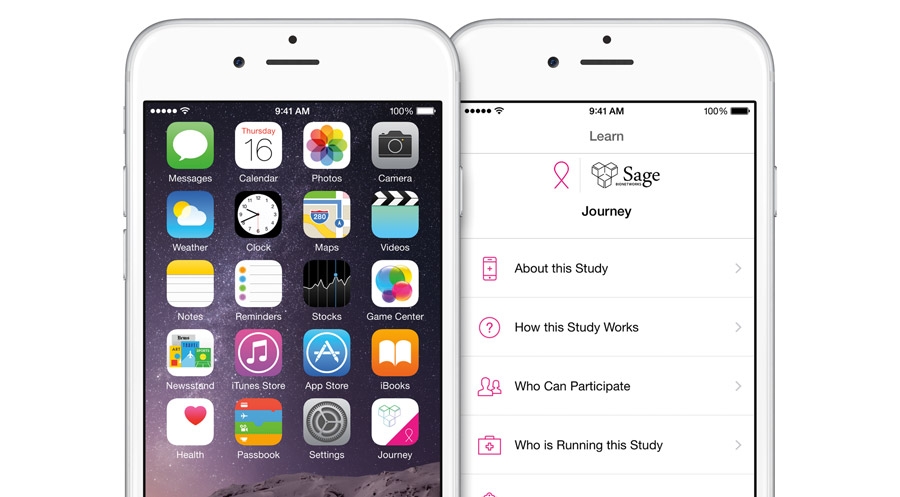Apple Launches 'ResearchKit' for Medical Studies
In its coverage of Apple's new slate of health research apps, NBC News featured "Share the Journey," an app developed in partnership with the Fielding School's Dr. Patricia Ganz to track the experiences of breast cancer survivors
Source:
Date:
Tuesday, March 10, 2015

Patients with asthma, Parkinson's, breast cancer and other conditions can use iPhones to take part in medical research studies using their devices, Apple announced Monday.
It's already been working with some big research institutions to design apps using ResearchKit, which lets patients use iPhones interactively to send researchers data about heart rate, coordination and symptoms.
"You decide whether to participate. You decide how your data is shared. You can see the data you're sharing."
Apple will not see data that people are sending to their doctors, the company said, while also stressing the ease of use."I think it has the potential to really change the way research is done."
"Parkinson's patients can record their symptoms with iPhone just by saying 'ahhhh'," Apple's Jeff Williams told the company's on-stage event unveiling new technology for the year.
"I think it has the potential to really change the way research is done," said Dr. Ednan Bajwa, director of the medical intensive care unit at Massachusetts General Hospital, who is not involved in any of the research.
It can save time and money for researchers who are gathering mundane data from patients, said Bajwa.
"In an area where budgets are being slashed, it could really take the pressure off," he said.
UCLA's one of the universities that has designed an app aimed at breast cancer patients called Share the Journey.
"The data it will provide takes us one step closer to developing more personalized care," said UCLA researcher Dr. Patricia Ganz.
"Access to more diverse patient-reported health data will help us learn more about long-term aftereffects of cancer treatments and provide us with a better understanding of breast cancer patients' experience." Patients can use the app to report five common consequences of breast cancer treatment: fatigue, cognitive difficulties, sleep disturbances, mood changes and a worse exercise performance.
"We're most interested in disease variations and the hourly, daily or weekly ebb and flow of symptoms that are not being tracked and completely missed by biannual visits to the doctor," said Friend, of Sage Sage Bionetworks. He also a principal investigator for Share the Journey.